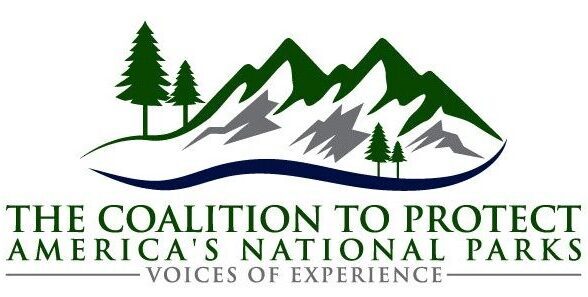Alaska Wilderness League Action * Azul * Center for Civic Policy * Citizens Caring for the Future * Clean Water Action * Coalition to Protect America’s National Parks * Conservation Voters New Mexico * Earthjustice * Earthworks * Environment America * Environmental Defense Fund * Friends of the Earth * GreenLatinos * Greenpeace USA * League of Conservation Voters * Montana Wildlife Federation * National Parks Conservation Association * National Wildlife Federation * Natural Resources Defense Council * Nevada Wildlife Federation * New Mexico Interfaith Power and Light * New Mexico Voices for Children * Nuestra Tierra Conservation Project * Partnership for Responsible Business * Public Citizen, Inc. * Rachel Carson Council * Rocky Mountain Farmers Union * Rocky Mountain Wild * San Juan Citizens Alliance * Sierra Club * The Wilderness Society * Western Leaders Network * Western Organization of Resource Councils * Wild Montana
The Honorable Nancy Pelosi
Speaker of the House
U.S. House of Representatives H-232
Washington, D.C. 20515
The Honorable Charles Schumer
Majority Leader
U.S. Senate S-221
Washington, D.C. 20510
CC: Chairmen Grijalva, Manchin, Sanders, Yarmuth, Wyden, and Neal
Dear Speaker Pelosi and Majority Leader Schumer:
After a significant and important $4.7 billion investment toward plugging orphaned wells in the Infrastructure Investment and Jobs Act of 2021, it is critical that the House and Senate also advance common-sense reforms to this country’s federal oil and gas program. As outlined below, these reforms will lower federal liability and economic waste, raise billions of dollars in revenue, increase taxpayer returns on publicly owned resources for the American people, and better protect the health of local communities and our air, water, and climate.
Specifically, as you consider a suite of priorities during the reconciliation process, we ask that you advance legislative proposals to update federal oil and gas bonding standards and minimum bids, rents, and royalty rates; end non-competitive leasing; and end the leasing of lands with low or no potential for oil and gas development.
It is essential that Congress act to prevent future orphan wells by ensuring that oil and gas companies meet their legal obligation to plug and remediate their wells. To do so, Congress must update woefully insufficient and outdated federal bonding requirements currently in place. As numerous recent analyses have shown, the costs of remediating oil and gas wells after their useful lives can cost over $100,000 per well, far beyond the $10,000 blanket bond today’s operators use to cover hundreds, or thousands, of wells on federal leases. Low bond minimums disincentivize proper reclamation of wells and leave taxpayers responsible for growing cleanup costs.
Oil and gas producers are not only let off the hook for cleaning their polluting legacies, but they also enjoy subsidies and handouts in the form of inordinately low royalty rates, minimum bids, and rents. The federal onshore program’s fiscal policies are outdated, and fail to account for increased production, inflation, or rental and royalty rates charged by states. In fact, all the major oil and gas producing states in the West require higher royalty rates than the federal government’s onshore rate. The federal onshore royalty rate dates to 1920, while rental rates and minimum bids have not been updated since the 1980s.
The stagnation in rates has resulted in non-competitive leasing, where oil and gas companies hoard public lands for next to nothing, preventing other productive uses. According to a recent Government Accountability Office (GAO) report, 99 percent of recently issued non- competitive leases never produce oil or gas and so taxpayers do not earn royalties from most of these leases. Congress must act to end the practice of leasing without competitive bids and remove lands from consideration with low development potential. Doing so will cut administrative costs and end speculative leasing.
As a result of these badly outdated policies, taxpayers have missed out on billions of dollars of potential revenue. Indeed, the GAO has found – across a decade and more than 20 reports – that the federal oil and gas program is “vulnerable to waste, fraud, abuse or mismanagement, or in need of transformation.” Addressing the GAO’s findings, which include the major areas of concern highlighted in this letter, will generate significant increases in federal revenue, secure a fair price for access to public resources for the American public, and save taxpayer money in the future. Congress has an opportunity to act through the budget reconciliation process to enact reforms to this outdated system.
Congress’s reconciliation priorities in oil and gas must focus on updating federal oil and gas bonding standards to be consistent with closure costs; updating minimum bids, rents, and royalty rates; ending non-competitive leasing; and ending the leasing of lands with low or no potential for oil and gas development. Each of these important reforms will help advance responsible management of our shared public resources and will protect the interests of taxpayers, frontline communities, and future generations.
On behalf of our 34 organizations representing millions of members nationwide, thank you for your attention to these important issues.
Sincerely,
Alaska Wilderness League
Action Azul
Center for Civic Policy
Citizens Caring for the Future
Clean Water Action
Coalition to Protect America’s National Parks
Conservation Voters New Mexico
Earthjustice
Earthworks
Environment America
Environmental Defense Fund
Friends of the Earth
GreenLatinos
Greenpeace USA
League of Conservation Voters
Montana Wildlife Federation
National Parks Conservation Association
National WildlifeFederation
Natural Resources Defense Council
Nevada Wildlife Federation
New Mexico Interfaith Power and Light
New Mexico Voices for Children
Nuestra Tierra Conservation Project
Partnership for Responsible Business
Public Citizen, Inc.
Rachel Carson Council
Rocky Mountain Farmers Union
Rocky Mountain Wild
San Juan Citizens Alliance
Sierra Club
The Wilderness Society
Western Leaders Network
Western Organization of Resource Councils
Wild Montana
